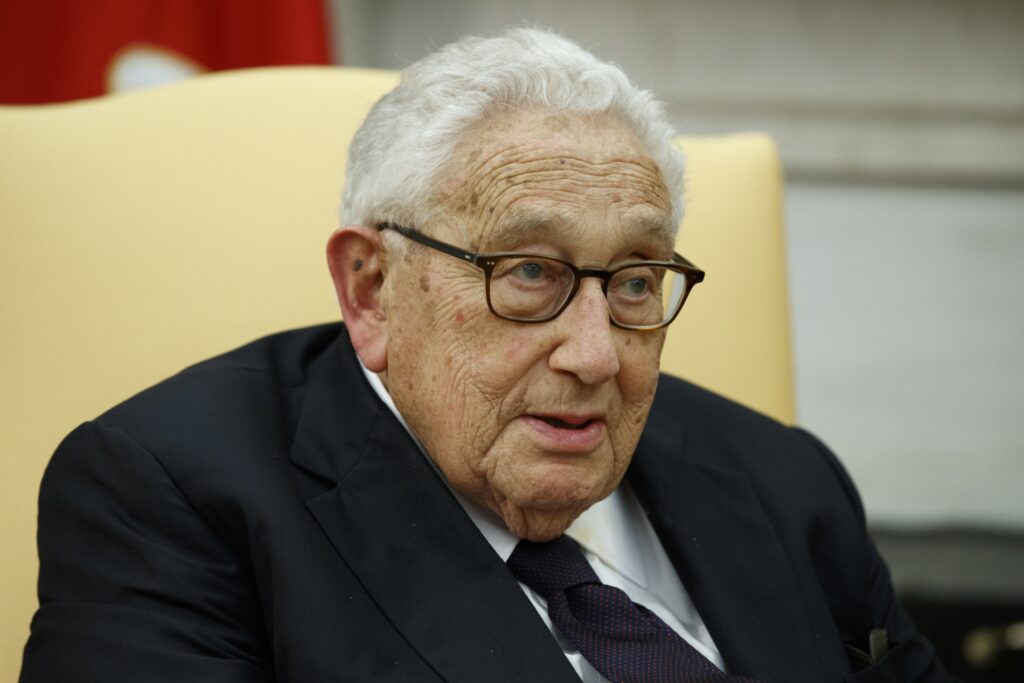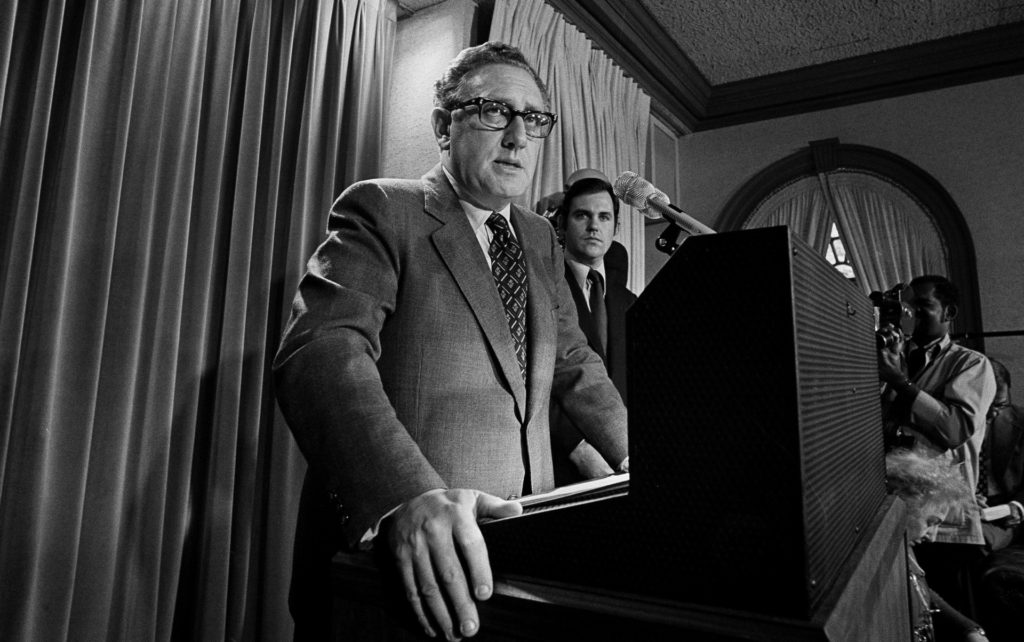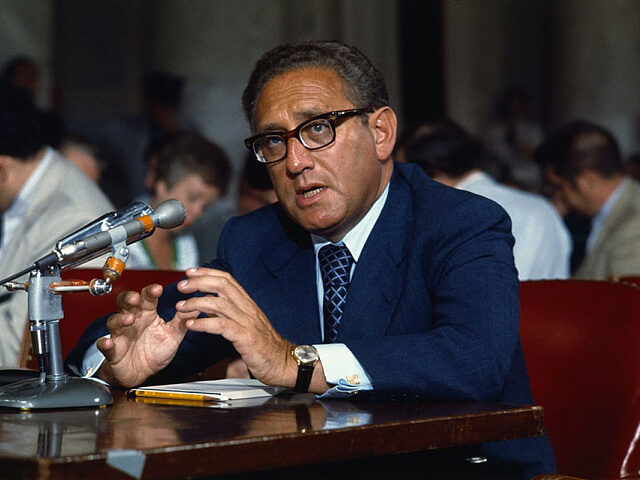Henry Kissinger, the former U.S. Secretary of State during the Richard Nixon administration, died after a long career at the age of 100.
Kissinger died at his home in Connecticut on Wednesday, according to Kissinger Associates Inc. He had served under two presidents — Richard Nixon and Gerald Ford. His work as a diplomat expanded several decades as he wrote multiple books and advised U.S. leaders on foreign relations well up to his death.
“Kissinger had been active past his centenary, attending meetings in the White House, publishing a book on leadership styles, and testifying before a Senate committee about the nuclear threat posed by North Korea. In July 2023 he made a surprise visit to Beijing to meet Chinese President Xi Jinping,” noted Reuters.

Former Secretary of State Henry Kissinger speaks during a meeting with President Donald Trump in the Oval Office of the White House, Tuesday, Oct. 10, 2017, in Washington. (AP Photo/Evan Vucci, File)
“In the 1970s, he had a hand in many of the epoch-changing global events of the decade while serving as secretary of state under Republican President Richard Nixon. The German-born Jewish refugee’s efforts led to the diplomatic opening of China, landmark U.S.-Soviet arms control talks, expanded ties between Israel and its Arab neighbors, and the Paris Peace Accords with North Vietnam,” it added.
Kissinger’s work with Nixon’s famous U.S. foreign policy waned following the president’s resignation due to the Watergate Scandal. He had a limited influence under President Gerald Ford, whose administration failed to back South Vietnam as it fell to the communists. In 1973, he won the Nobel Peace Prize for the Paris Peace Accords alongside North Vietnam’s leader Le Duc Tho, who declined it. It has been considered one of the most controversial Nobel awards in history. Per Nobelprize.org:
Christmas 1972 saw heavy bombing raids carried out over the North Vietnamese capital Hanoi by American B-52 bombers. All over the world, thousands of people took to the streets in protest. The man who ordered the bombing was at the same time spearheading cease-fire negotiations. The armistice took effect in January 1973, and the same autumn Henry Kissinger was awarded the Peace Prize together with his counterpart Le Duc Tho. The latter refused to accept the Prize, and for the first time in the history of the Peace Prize two members left the Nobel Committee in protest.

In this Oct. 26, 1972 file photo, then-presidential adviser Dr. Henry Kissinger tells a White House news conference that “peace is at hand” in Vietnam. (AP Photo)
As noted by Politico, Kissinger “moved on to a career as a consultant and lecturer on international affairs” after Gerald Ford lost the 1976 presidential election.
“President Ronald Reagan subsequently appointed him to chair the National Bipartisan Commission on Central America,” it noted.
“It was one of many boards and commissions he would serve on; for instance, when Elizabeth Holmes wanted to enhance the credibility of her over-hyped Silicon Valley startup Theranos, she brought in Kissinger and George Shultz for a double dose of prestige,” it added.
Kissinger divorced his first wife, Ann Fleischer, in 1964 after fathering two children with her. He later married Nancy Maginnes, an aide to New York Gov. Nelson Rockefeller, in 1974.

COMMENTS
Please let us know if you're having issues with commenting.